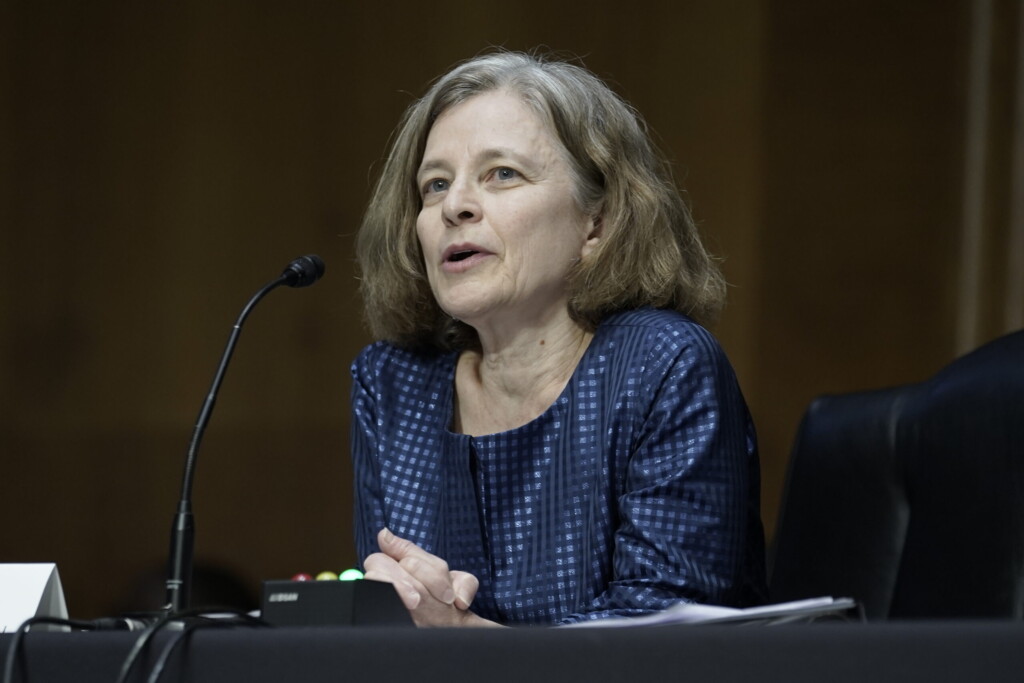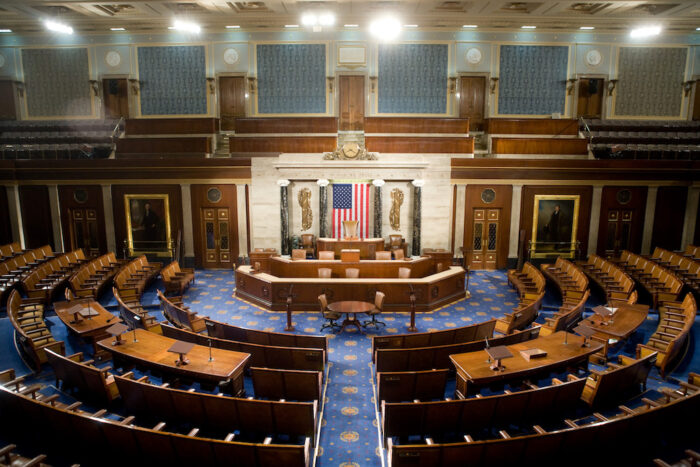Sarah Bloom Raskin Withdraws Nomination to Federal Reserve Board

Sarah Bloom Raskin of Maryland withdrew her nomination to the Federal Reserve Board on Tuesday, the day after a key coal-state Democrat announced he would vote against her due to her views on climate change.
In a three-page letter to President Biden, Raskin, a Duke University law professor whom the Senate confirmed to two earlier financial regulatory positions in 2010 and 2014, said she was withdrawing to allow for votes to go forward on a slate of four other nominees to the board overseeing the U.S. central bank.
The withdrawal was first reported by The New Yorker, which also published the letter.
Raskin and four other Fed nominees had been held up for weeks by Republicans on the Senate Banking Committee, all of whom refused to meet to consider the nominations and deprived the panel of the quorum needed to vote on them.
In her letter, Raskin laid much of the blame on the Republican senators who boycotted her committee vote, and decried the “polarized condition” of the Senate process.
The Senate confirmed Raskin without controversy in 2010 for a seat on the Fed board and in 2014 to be the second-in-command at the U.S. Treasury Department. Biden had nominated her to be the Fed’s vice chair for supervision, the top banking regulator on the board.
In a White House statement, Biden also blasted Senate Republicans for tanking a nominee with “unparalleled experience” and two prior Senate confirmations.
“Sarah was subject to baseless attacks from industry and conservative interest groups,” Biden said. “Unfortunately, Senate Republicans are more focused on amplifying these false claims and protecting special interests than taking important steps toward addressing inflation and lowering costs for the American people.”
But it was the Monday statement of Sen. Joe Manchin III, a conservative Democrat from West Virginia, opposing Raskin that likely sealed the nominee’s fate. In the evenly divided Senate, Manchin’s vote is needed when Republicans unite in opposition.
Manchin, who leads the Senate Energy & Natural Resources Committee and has ties to the coal industry, said he was not satisfied that Raskin’s position was compatible with “financing an all-of-the-above energy policy to meet our nation’s critical energy needs.”
Biden did not mention Manchin in his statement.
Climate change
In her Tuesday letter, Raskin defended her position that the Fed should consider the risks of climate change when overseeing financial institutions.
“It was — and is — my considered view that the perils of climate change must be added to the list of serious risks that the Federal Reserve considers as it works to ensure the stability and resiliency of our economy and financial system,” she wrote. “This is not a novel or radical position.”
Banks and insurance companies already factor extreme weather risks into their plans, and central banks in other countries have acted on the issue, she said.
“Many in and outside the Senate are unwilling to acknowledge the economic complications of climate change and the toll it has placed, and will continue to place, on Americans,” she said. “Addressing the transition of the economy as it grapples with the effects of climate change is critical to the future of American prosperity.”
The Fed has difficult work that demands immediate attention, Raskin wrote. Withdrawing her own candidacy would allow the nominations of current Fed Chair Jerome Powell, Governor Lael Brainard, and economists Lisa D. Cook of Michigan State University and Philip Jefferson of Davidson University, to proceed, she said.
In a statement, Senate Banking Chairman Sherrod Brown, a Democrat from Ohio, said he would bring the other nominees for a committee vote.
In a Monday statement, the ranking Republican on Senate Banking, Pennsylvania’s Pat Toomey, said Republicans who had refused to meet were ready to vote on the other four nominees.
Brown lambasted the Republicans for “a disingenuous smear campaign” against Raskin.
“Sadly, the American people will be denied a thoughtful, experienced public servant who was ready to fight inflation, stand up to Wall Street and corporate special interests, and protect our economy from foreign cyber attacks and climate change,” he said.
In her letter, Raskin thanked Biden, Brown and the rest of the committee’s Democrats, as well as her husband, U.S. Rep. Jamie B. Raskin, a Maryland Democrat, and their daughters.




 Creative Commons Attribution
Creative Commons Attribution